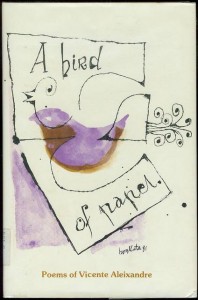Du mußt dir vorstellen, ein Haufen Affen die faul an Bäumen baumeln und den ganzen Tag die Bananen genießen, die ihnen vor der Nase hängen.
Und trotzdem, die Lebensbedingungen dieser Menschen sind unbeschreiblich. Ihre einzige Sorge ist gut zu essen, zu trinken und nicht allzuviel tun. Ich habe nirgendwo so viel Schmutz und Dreck an einem Ort gesehen, wo verglichen mit dem Möglichkeiten die sie hätten, viel mehr Ordnung sein müßte.
Alles ist ein Durcheinander, von Luxusgütern gemischt mit anderen Dingen die einen erbärmlichen und von ungeheure schlechten Geschmack zeugen.
Ich habe Bauern gesehen die in Pferdewagen, barfuß und schmutzig waren, die aber mit dem Handy telefonierten. Ich habe Menschen gesehen, die ihre Luxuskarossen in einem verrosteten Laster durch die Gegend spazierenfuhren, um anderen Leuten zu zeigen was sie besitzen. Ich habe hunderte von herrenlosen Hunden gesehen, die mitten auf den Straßen schliefen. Ich habe genau im Stadtkern von Bukarest zerfallene Hütten gesehen, die an zerbrochenen Fenstern, an Stelle von Gardinen, T-Shirts und alte Pyjamas hatten. Ich habe unglaublich luxuriöse Kaufhäuser gesehen, die von Polizisten bewacht waren, während draußen am Straßenrand Bettler mit traurigen Augen saßen.
La manie pompeuse de ceux qui sont « arrivés », qui se sont enrichi, est inimaginable. Nombreux sont ceux qui travaillent à l’étranger et qui retournent au pays avec de l’argent et le désir d’avoir à tout prix ce que les autres n’ont pas. C’est ainsi qu’ils se payent des villas et maisons horriblement pompeuses en dehors de Bucarest, des maisons qui ont l’air ridicule dans des villages où les autochtones restés, vivent encore dans leurs maisonnettes bâties d’argile et bouse de vache, blanchies à la chaux et avec des toits penchants telles de petites vieilles en train de bavarder. La vue jadis si belle est détruite et le comble est que même dans les cours de ces maisons bien à part, on peut voir, quelque part vers le grillage en fer forgé, une vache à côté d’une carriole essayant de paître parmi les tas de briques cassées.
Que pourrais-je te dire de plus, c’était un pèlerinage dans le passé traversant d’abord le futur, un bizarre mélange d’états sociaux, l’apparence visible d’un peuple qui, selon mon avis, n’aura jamais la chance d’arriver assez loin, exactement à cause des discordances excessives. On ne saura jamais convertir à notre civilisation une petite vieille innocente qui crache dans sa poitrine lorsqu’on la photographie et qu’on lui montre immédiatement l’image, sur le dos d’un appareil numérique. Et c’est exactement là la cause du fait que j’ai une grande pitié et compréhension pour ceux qui sont arriérés d’une centaine d’années, et aucune tolérance pour ceux qui, par des ruses, mensonges et tromperies, essaient de tirer le plus bas possible ce pays. Malheureusement nous n’y pouvons rien faire, mai la sensation demeure douloureuse.
[Read more →]


